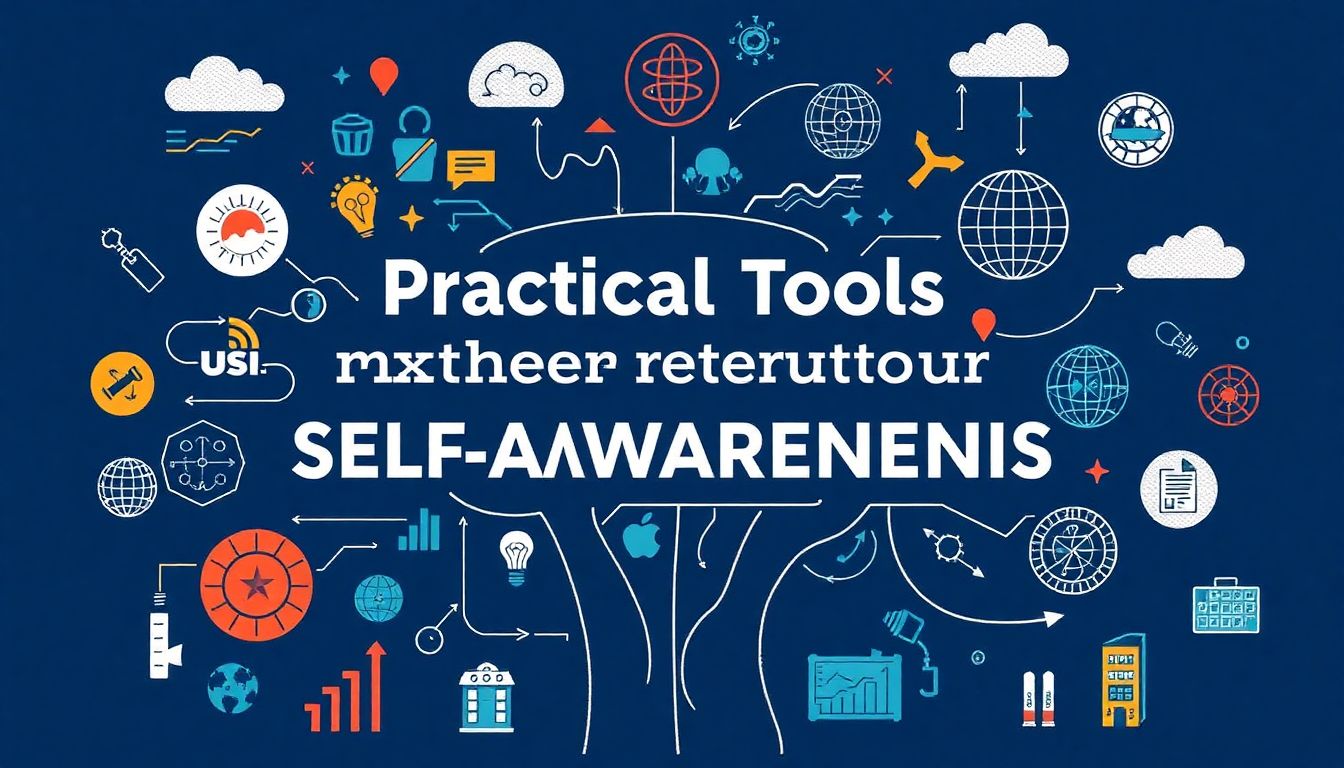Self-awareness is one of the most valuable skills in your professional toolbox—but like any skill, it needs to be cultivated intentionally. While reflection is powerful, having the right tools can take your self-awareness practice to a new level, especially in the workplace.
Whether you’re a freelancer, team leader, or navigating the corporate world, there are practical tools you can use to better understand yourself, your impact, and your path forward. Let’s explore some of the most effective ways to build self-awareness that translates into real results at work.
Personality and Strengths Assessments
Assessments give you structured insight into your preferences, tendencies, and unique strengths. When used thoughtfully, they can help you recognize behavioral patterns, improve communication, and make career decisions with greater clarity.
Some useful assessments include:
CliftonStrengths
This tool identifies your top strengths across 34 themes, helping you understand what you naturally do best. It’s especially useful for building confidence, guiding team dynamics, and aligning your role with your innate talents.
MBTI (Myers-Briggs Type Indicator)
One of the most popular tools, MBTI outlines personality types based on how you process information, make decisions, and relate to others. While not scientifically perfect, it can offer valuable self-reflection on your communication style and work preferences.
DISC Personality Profile
This assessment focuses on behavior in professional environments. It’s great for improving leadership, teamwork, and communication by identifying dominant traits like dominance, influence, steadiness, and compliance.
VIA Character Strengths
Used often in coaching and positive psychology, this tool helps you understand your core character strengths—like gratitude, curiosity, or leadership. It highlights qualities that are often overlooked but deeply shape your behavior.
Journaling for Clarity and Reflection
Journaling is one of the most accessible and effective tools for developing self-awareness. Taking a few minutes each day or week to reflect on your thoughts, feelings, and actions can reveal valuable insights.
Prompts to explore:
- What did I do well at work today?
- When did I feel most confident or frustrated?
- What patterns am I noticing in my reactions?
- How did I handle stress or communication?
Over time, journaling builds emotional intelligence, strengthens decision-making, and helps you stay aligned with your values and goals.
Feedback Collection Systems
Actively seeking feedback is a sign of maturity and a powerful self-awareness practice. Consider setting up a simple, recurring system to gather input from peers, clients, or managers.
Some options include:
- Monthly one-on-one check-ins with open-ended questions
- 360-degree feedback tools used in teams to assess communication, leadership, and collaboration
- Anonymous surveys or feedback forms, especially in leadership roles
The key is to create a safe space for honest feedback, listen with curiosity, and integrate what you learn into your growth strategy.
Mindfulness and Meditation Apps
Mindfulness helps you stay aware of your thoughts, emotions, and behaviors in real time. Practicing mindfulness reduces stress, sharpens focus, and improves emotional regulation—all of which support better performance at work.
Popular tools include:
- Headspace
- Calm
- Insight Timer
- Ten Percent Happier
Even five minutes of daily breathing or guided meditation can help you become more present and aware of your inner state throughout the workday.
Digital Self-Tracking Tools
There are many digital tools that help you monitor productivity, focus, and emotional patterns. These tools offer data that you can use to adjust habits and increase awareness of how you spend your energy.
Some examples:
- RescueTime (tracks how you spend time on digital devices)
- Toggl Track (time tracking for tasks and productivity)
- Moodflow or Daylio (track your mood and emotional patterns)
- Notion or Evernote (for logging reflections and tracking goals)
Use the data not to judge yourself, but to explore how your habits align—or don’t—with your goals and values.
Visualization and Vision Boards
Visual tools can make your goals and desires more concrete. Creating a career vision board—digital or physical—helps you clarify what success looks like to you and why.
Include:
- Images that represent your career goals or values
- Words or phrases that inspire you
- Quotes from mentors or role models
- Reminders of your strengths and wins
Revisiting this board regularly keeps you connected to your personal vision and reinforces your commitment to aligned action.
Coaching and Mentorship
Sometimes, the most effective self-awareness tools come through other people. Working with a coach or mentor offers a safe space to explore your mindset, patterns, and decisions.
A coach can help you:
- Set career goals based on your values
- Navigate difficult transitions
- Unpack emotional triggers
- Hold you accountable to personal growth
Even informal mentorship—through conversations with someone you admire—can spark powerful insight and clarity.
Using Tools Intentionally
The best tools are the ones that match your personality and needs. You don’t need to use everything at once. Choose one or two, commit to them, and observe the impact over time.
Self-awareness isn’t about becoming obsessed with analysis—it’s about developing clarity, confidence, and intentionality in how you work and lead. These tools are not ends in themselves. They’re gateways to deeper understanding, better choices, and a more authentic career.
When you use the right tools with the right mindset, you don’t just learn about yourself—you unlock your next level.
